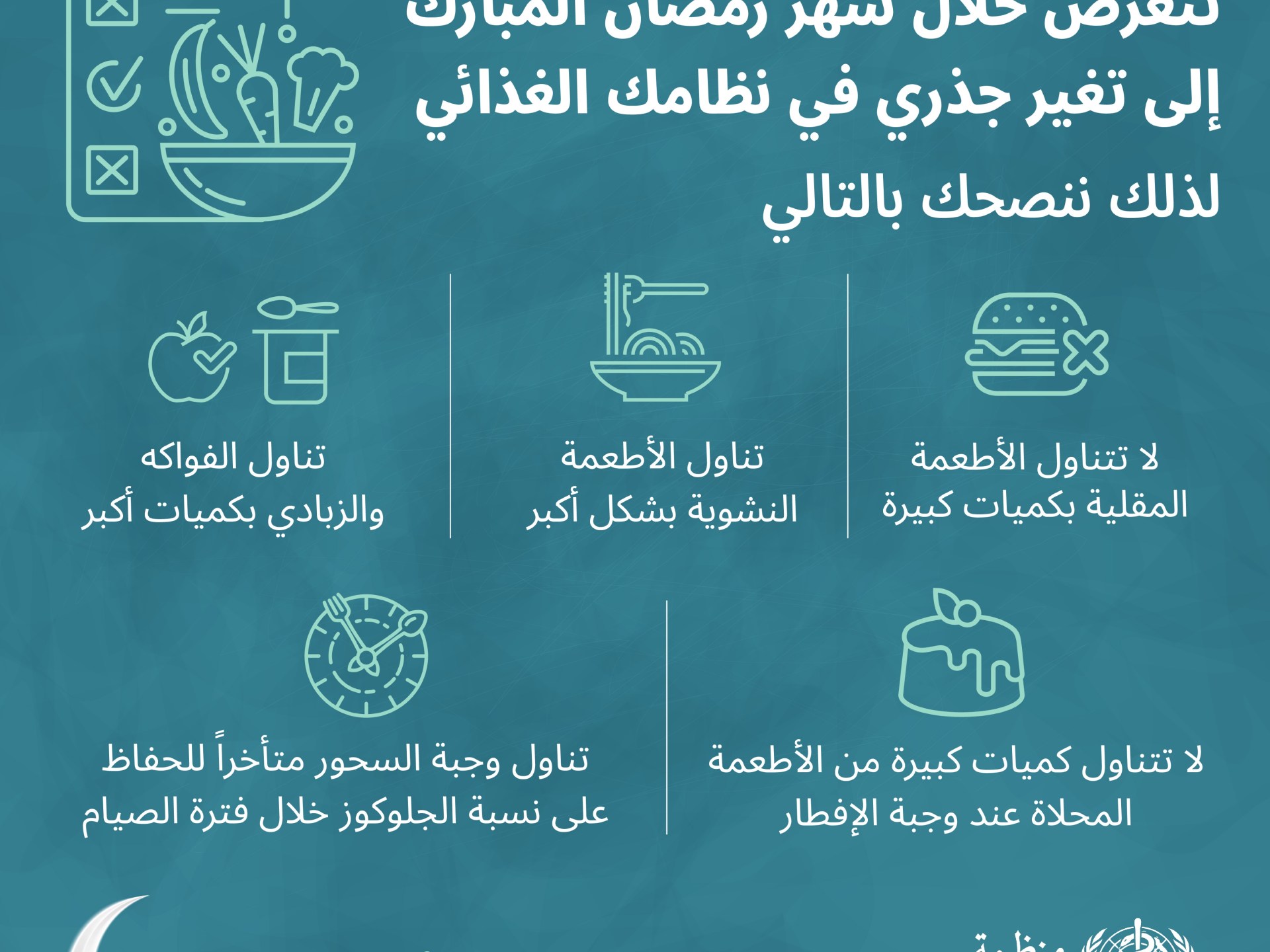What should diabetics and hypertensive patients pay attention to when i'tikaaf in Ramadan? What are the general guidelines for performing a healthy and comfortable retreat?
Can a diabetic and hypertensive patient perform i'tikaf and tahajjud in Ramadan?
The answer is generally yes, as long as the person is in stable health, his sugar and blood pressure are under control, and he takes his medications regularly, with the need to consult a doctor first.
Here are tips for diabetics and stress patients to prepare for retreat:
First: Iftar time
Preparing for I'tikaf begins at Iftar time, by eating a healthy balanced meal, which does not burden the person's stomach, and at the same time provides him with energy and nutrients, according to the following:
- Breakfast on dates and water.
- Perform Maghrib prayer.
- Eat a plate of clear soup, which means light soup, such as prepared from diluted chicken broth, not thick soups such as prepared with cream.
- Eat breakfast, making sure that half of the dish is made of non-starchy vegetables such as carrots, broccoli and zucchini, a quarter of a plate of healthy carbohydrates, such as rice and pasta, and a quarter of proteins such as lentils, meat and fish.
- Take your medications as directed by your doctor.
- An hour and a half after breakfast, the diabetic patient is advised to measure blood sugar, and make sure that it is within the target range for his condition.
- Half an hour after breakfast, a blood pressure patient can check his pressure, generally it should be less than 120/80 milliliters of mercury.
Second: Taraweeh
When going to Taraweeh prayers, be sure to take a bottle of water with you, in order to keep your body hydrated.
If you have diabetes, you should carry pieces of sweets or a sugary drink, so that you can drink it if you feel symptoms of low blood sugar.
Symptoms of hypoglycemia
Symptoms of hypoglycemia are divided into two categories:
Symptoms of mild to moderate hypoglycemia:
- Flickering.
- Hunger.
- Burnout.
- Vertigo or dizziness.
- Confusion or irritability.
- Rapid heartbeat.
- Headaches.
- Inability to see or speak clearly.
Symptoms of severe and sudden hypoglycemia
If your blood glucose level is too low, your brain may stop working as it should, and symptoms include:
- Loss of consciousness.
- Seizure.
- Severe hypoglycemia is serious and needs to be treated immediately.
While you are inside the mosque in I'tikaf, it is useful to bring with you a bag containing:
- Blood glucose meter.
- Blood pressure monitor.
- Hard sweets.
- Your medications.
- Chopped vegetables such as cucumbers and carrots.
- Light sugar-free teas.
- Salt-free nuts.
Third: After Taraweeh
After Taraweeh (e.g. at 11 o'clock at night), you can sleep for two or three hours until you actively pray Tahajjud.
Fourth: Suhoor
As the end of the month approaches, the bellies adapt greatly to the amount of food we consume, making us feel that we are not hungry. As a result, many people skip suhoor because they feel full from breakfast.
This is wrong, it is necessary to eat Suhoor to provide your body with water and nutrients, especially for patients. Healthy foods for Suhoor include:
- Whole wheat bread.
- Boiled eggs.
- Canned tuna in water.
- Black olives.
- Green beans.
- Hummus.

